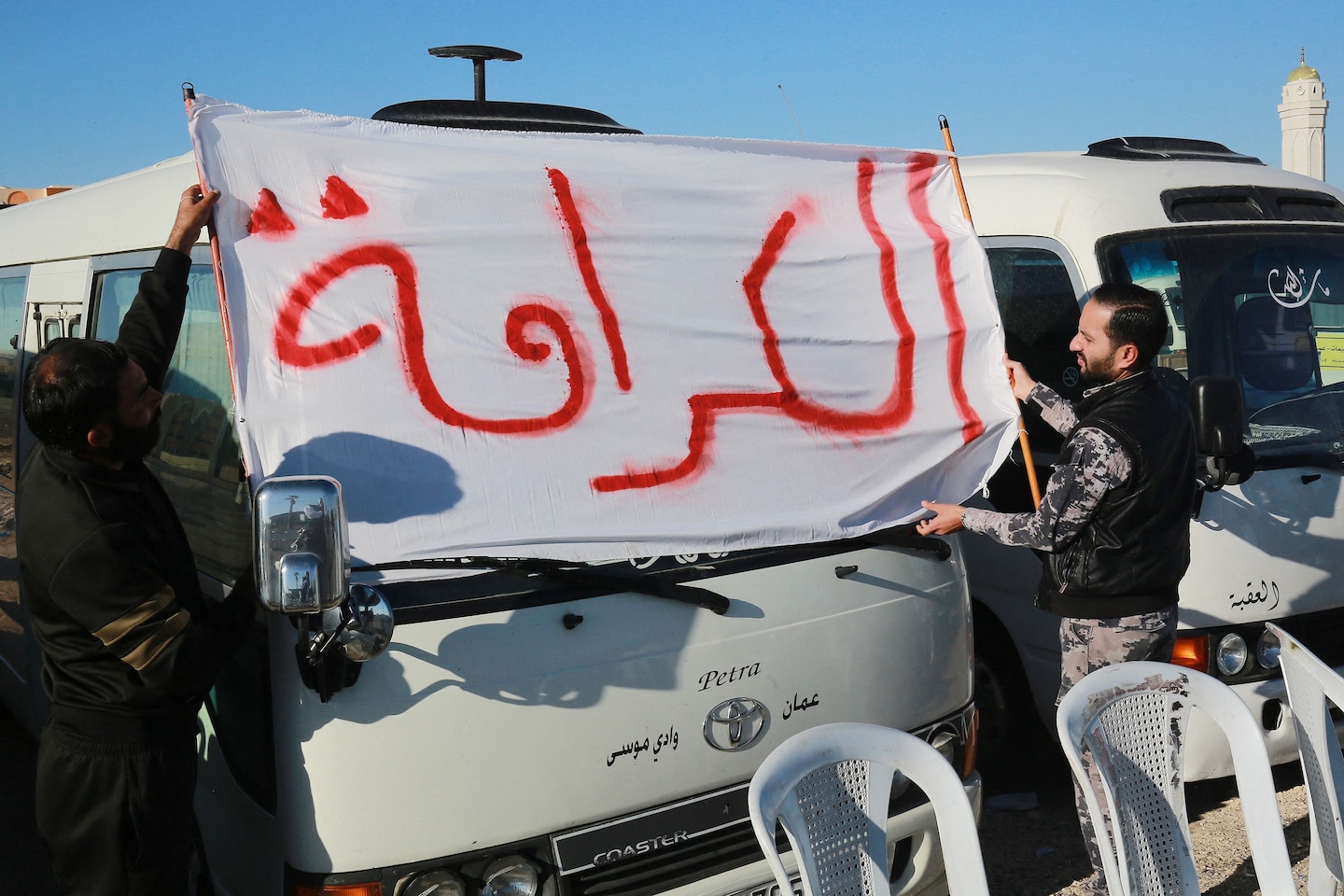Police were deployed last week to “calm down riots” in Ma’an, and underdeveloped province in the southeast, according to the state-run news agency Petra. The province’s deputy police chief was then shot in the head by people the police described as “saboteurs.”
The government’s reaction was swift: Authorities vowed to “strike with an iron fist” any such attacks. The next day, they announced a temporary ban on TikTok, popular for sharing videos of protests. Jordan’s cybercrime unit said it was tracking instances of “hate speech, incitement to vandalize and attack law enforcement cadres and property, and blocking roads” on the social media app.
In a show of support, King Abdullah II’s son and heir, Crown Prince Hussein, attended the fallen deputy police chief’s funeral. Activists say Ma’an remains under an internet blackout.
Notably absent from the government’s response has been a mention of the reasons, frustrations and anger fueling the protests. Citizens watched the security apparatus crack down without receiving any reassurance that officials are addressing the economic pain that’s plaguing the country.
Three police officers were shot dead Monday during a raid targeting the alleged hideout of the men suspected of killing the deputy police chief. The Public Security Directorate said one suspect was killed and nine others arrested. Authorities said they all belonged to what they called a “terrorist cell” that follows “Takfiri ideology” — an extremist form of Islam whose adherents view more moderate Muslims as infidels.
The reaction follows a pattern of which Jordanians have grown weary: The government addresses security concerns with an urgency that’s not granted to other crises felt by the public. In the absence of official statements on the protesters and their demands, the narrative in official media now is largely about the “Takfiri” element, which “has actually fueled more anger,” former foreign minister Marwan Muasher told The Washington Post.
Jordan, like many countries, is suffering rising unemployment, debt, inflation, and food and energy prices. But the country’s economic troubles preceded the pandemic and the Russia-Ukraine war; those events have only exacerbated them. The country has long depended on foreign aid from the United States and Saudi Arabia, but as relations with Saudi Arabia have cooled in the past few years, Muasher said, that support has slowed.
Jordan is largely devoid of natural resources. A relatively strong growth rate of 2.2 percent in 2021 did not lead to strong job creation, the World Bank said in July. Unemployment stood at around 23 percent at the end of 2021, up from 19 percent before the pandemic. The World Bank report said the “alarming” levels of unemployment “are mainly due to the limited capacity for the private sector to generate more and better jobs with the economy being dominated by small, low-productivity firms.”
Despite years-long calls by economists for Jordan to develop more economic self-reliance, the government still employs an “outdated” system that relies on foreign aid and an emphasis on security services, according to Muashar, vice president for studies at the Carnegie Endowment for International Peace.
“There is a strange resilience to stick to old tools that are no longer sufficient to maintain social peace,” he said. “Where is the government?” is a question many Jordanians are posing at a time when the state has been “glaringly absent.”
“The status quo is not sustainable,” he said.
Some lawmakers have angrily echoed citizens’ concerns. One member of parliament, Ismail al-Mashaqbeh, blamed the government for pushing people to the street by hiking prices, asked “to be kind to people’s conditions as we are now in winter,” and questioned whether the government had studied its decision before making it.
A member of parliament from the south, Eid al-Naimat, said the public was tired of hearing the government say “The [cooking] gas cylinder will not be touched” while officials raise prices related to fuel. He warned that quick measures are needed to avoid further unrest.
Naimat emphasized the need to reduce the tax on fuel derivatives to protect citizens from what he dubbed a “big ghost.” Anger at this tax has grown, which another lawmaker said amounted to approximately $1.7 billion last year — totaling 3.7 percent of the country’s overall GDP.
“There is also anger over what is seen as a lack of transparency about this tax,” Muasher said. “A lot of people are saying gasoline prices have gone down internationally, so why are they going up in Jordan? All these questions may have credible answers, but they’re not being put forth by the government.”
Despite the TikTok ban, people still found ways to post videos of protesters chanting at the king: “Rest, rest, oh Abdullah, when are you planning to do reforms? You killed us, you corrupt [people].”
Some ridiculed the ban. One young man posted a video saying, “It’s okay, I’ll just open Facebook. I’ll open Instagram.” He pointed to his eyeglasses: “These days, even these can go live.”



